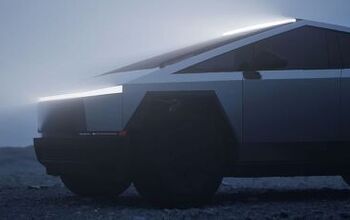These Are the Most Reliable Cars in Each Category, Says J.D. Power
Recent findings from J.D. Power show that after three years of ownership, vehicle dependability has diminished. Owners are reporting more problems compared to the previous year, with the industry average escalating to 190 problems per 100 vehicles (PP100). The disparity in problem rates between the initial 90 days and three years of ownership has surged, indicating a notable decrease in vehicle dependability over time.
Electrified Vehicles: A Mixed Bag
Owners of BEVs and PHEVs report more problems than those with gasoline and hybrid vehicles, with tire replacement being a notable issue for BEV owners.
Segment-by-Segment Breakdown
The study lists the most reliable vehicles across different categories, with Toyota Motor Corporation achieving the most segment awards. Here is an organized summary of the top-ranking models:
Compact and Midsize Cars:
Compact Cars:
- Toyota Corolla
- Honda Civic
- Toyota Prius
Compact Premium Cars:
- Lexus IS
- BMW 4 Series
- BMW 3 Series
Midsize Cars:
- Toyota Camry
- Chevrolet Malibu
- Hyundai Sonata
Midsize Premium Cars:
- Lexus ES
Premium Sporty Cars:
- Porsche 718
- Chevrolet Corvette
Pickup and Van Segments:
Large Heavy Duty Pickups:
- Ford Super Duty
- GMC Sierra HD
- Chevrolet Silverado HD
Large Light Duty Pickups:
- Toyota Tundra
- GMC Sierra
- Chevrolet Silverado
Midsize Pickups:
- Toyota Tacoma
- Chevrolet Colorado
- Ford Ranger
Minivans:
- Kia Sedona
- Toyota Sienna
- Honda Odyssey
Standout Brands
Lexus is recognized as the most reliable brand overall, followed by Porsche and BMW for premium brands. In the mass market, Toyota ranks highest with Buick and Chevrolet in a close contest for reliability.
Methodology of the Study
The study reflects the experiences of over 30,000 owners of 2021 model-year vehicles after three years. It encompasses 184 problem areas across nine vehicle categories to provide a detailed analysis of long-term vehicle reliability.
This article was co-written using AI and was then heavily edited and optimized by our editorial team.
More by TTAC Staff
Latest Car Reviews
Read moreLatest Product Reviews
Read moreRecent Comments
- W Conrad I'm not afraid of them, but they aren't needed for everyone or everywhere. Long haul and highway driving sure, but in the city, nope.
- Jalop1991 In a manner similar to PHEV being the correct answer, I declare RPVs to be the correct answer here.We're doing it with certain aircraft; why not with cars on the ground, using hardware and tools like Telsa's "FSD" or GM's "SuperCruise" as the base?Take the local Uber driver out of the car, and put him in a professional centralized environment from where he drives me around. The system and the individual car can have awareness as well as gates, but he's responsible for the driving.Put the tech into my car, and let me buy it as needed. I need someone else to drive me home; hit the button and voila, I've hired a driver for the moment. I don't want to drive 11 hours to my vacation spot; hire the remote pilot for that. When I get there, I have my car and he's still at his normal location, piloting cars for other people.The system would allow for driver rest period, like what's required for truckers, so I might end up with multiple people driving me to the coast. I don't care. And they don't have to be physically with me, therefore they can be way cheaper.Charge taxi-type per-mile rates. For long drives, offer per-trip rates. Offer subscriptions, including miles/hours. Whatever.(And for grins, dress the remote pilots all as Johnnie.)Start this out with big rigs. Take the trucker away from the long haul driving, and let him be there for emergencies and the short haul parts of the trip.And in a manner similar to PHEVs being discredited, I fully expect to be razzed for this brilliant idea (not unlike how Alan Kay wasn't recognized until many many years later for his Dynabook vision).
- B-BodyBuick84 Not afraid of AV's as I highly doubt they will ever be %100 viable for our roads. Stop-and-go downtown city or rush hour highway traffic? I can see that, but otherwise there's simply too many variables. Bad weather conditions, faded road lines or markings, reflective surfaces with glare, etc. There's also the issue of cultural norms. About a decade ago there was actually an online test called 'The Morality Machine' one could do online where you were in control of an AV and choose what action to take when a crash was inevitable. I think something like 2.5 million people across the world participated? For example, do you hit and most likely kill the elderly couple strolling across the crosswalk or crash the vehicle into a cement barrier and almost certainly cause the death of the vehicle occupants? What if it's a parent and child? In N. America 98% of people choose to hit the elderly couple and save themselves while in Asia, the exact opposite happened where 98% choose to hit the parent and child. Why? Cultural differences. Asia puts a lot of emphasis on respecting their elderly while N. America has a culture of 'save/ protect the children'. Are these AV's going to respect that culture? Is a VW Jetta or Buick Envision AV going to have different programming depending on whether it's sold in Canada or Taiwan? how's that going to effect legislation and legal battles when a crash inevitibly does happen? These are the true barriers to mass AV adoption, and in the 10 years since that test came out, there has been zero answers or progress on this matter. So no, I'm not afraid of AV's simply because with the exception of a few specific situations, most avenues are going to prove to be a dead-end for automakers.
- Mike Bradley Autonomous cars were developed in Silicon Valley. For new products there, the standard business plan is to put a barely-functioning product on the market right away and wait for the early-adopter customers to find the flaws. That's exactly what's happened. Detroit's plan is pretty much the opposite, but Detroit isn't developing this product. That's why dealers, for instance, haven't been trained in the cars.
- Dartman https://apnews.com/article/artificial-intelligence-fighter-jets-air-force-6a1100c96a73ca9b7f41cbd6a2753fdaAutonomous/Ai is here now. The question is implementation and acceptance.


































Comments
Join the conversation